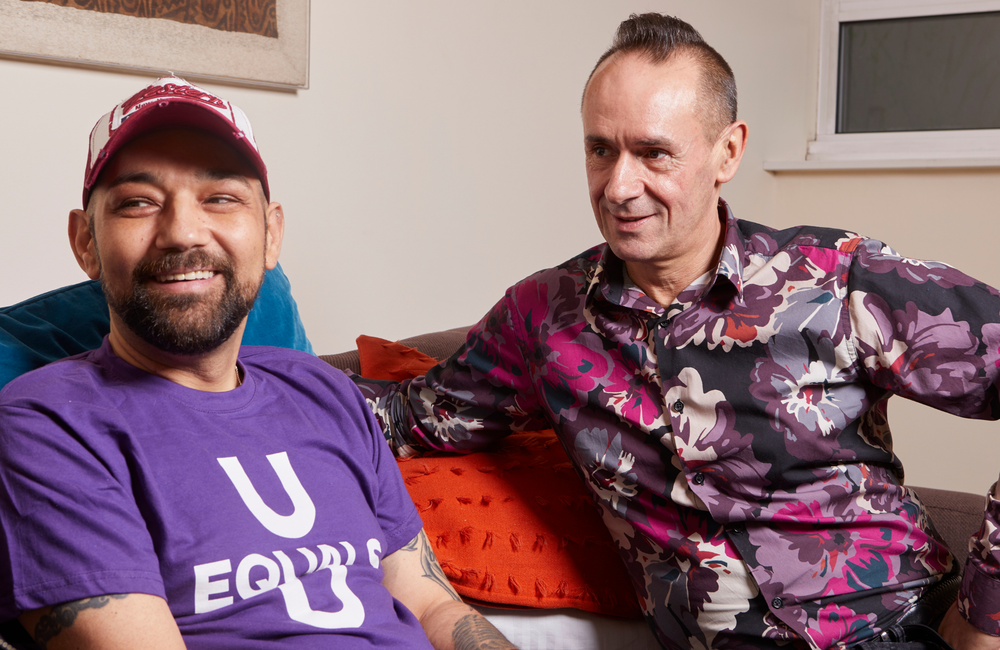
HIV-negative and never-tested gay and bisexual men in the Netherlands were found to overestimate the psychosocial implications of living with HIV. Health-related consequences, the burden of disclosure, the impact on sex and relationships, and practical consequences were also overestimated according to the study, conducted by researchers from the HIV Transmission Elimination Amsterdam Initiative, published in the journal AIDS and Behavior.
Despite the current status of HIV as a manageable and treatable chronic health condition with effective and well-tolerated antiretroviral therapy (ART) and the Undetectable=Untransmittable (U=U) message, the consequences of living with HIV are still overestimated by many people.
Experiences of living with HIV in the Netherlands were collected via 18 in-depth interviews with gay and bisexual men diagnosed with HIV between 2014 and 2018. The data from these qualitative interviews were used to identify the implications of living with HIV and to develop a questionnaire with 39 items. This questionnaire was circulated online to assess the experiences of gay and bisexual men living with HIV, while HIV-negative and never-tested gay and bisexual men were asked about their perceptions of living with HIV.
Responses from 1510 men who completed the survey were included in the analysis: 950 (63%) of the respondents were HIV negative, 438 (29%) were HIV positive and 122 (8%) had never tested for HIV.
Most men living with HIV said the quality of their lives hasn’t changed after HIV diagnosis while 14% reported an improvement and 17% a deterioration. When asked about the severity of having HIV, 31% of HIV-positive men said it was very serious, compared to 76% of HIV-negative and 83% of never-tested men. When asked about taking HIV medication, 79% men living with HIV said they were used to taking pills every day, whereas only 50% of HIV-negative and 42% of never-tested men thought they would get used to it.
Almost all participants living with HIV had an undetectable viral load and 71% trusted in the U=U message. HIV-negative and never-tested men reported less confidence with only 22% of never-tested men and 43% HIV-negative men trusting the U=U message. Furthermore, 31% of never-tested men and 23% of HIV-negative men said they do not trust U=U.
Eighteen per cent of participants living with HIV reported often experiencing an emotional burden from HIV while the anticipation of this was higher among HIV-negative men (51%) and never-tested (56%) gay and bisexual men. Fear of infecting family, friends and colleagues was reported by 23% of HIV-negative and 24% of never-tested participants, compared to 8% of participants living with HIV.
In addition, both HIV-negative and never-tested participants overestimated the burden of disclosure or non-disclosure: 66% of participants living with HIV reported the burden as low or medium, whereas 55% of HIV-negative and 67% of never-tested participants expected a high burden of disclosure.
Forty one per cent of participants living with HIV reported difficulties getting into a steady relationship due to living with HIV. More HIV-negative (51%) and never-tested (65%) participants expected difficulties. Both HIV-negative and never-tested participants overestimated the effects of HIV on sexual well-being, relationship quality, sexual pleasure, fear and stress during sex. Furthermore, both groups overestimated the likelihood of being left by a steady partner and getting rejected by new partners because of HIV status.
Only 3% of participants living with HIV frequently reported experiencing HIV stigma and discrimination, while 41% of HIV-negative and 43% of never tested participants said they would expect to experience it often.
“Most men living with HIV said the quality of their lives hasn’t changed after HIV diagnosis.”
Older HIV-negative and untested men anticipated a higher burden than young men in relation to many issues, including disclosure, finding casual sex partners, emotional aspects, getting fired or not hired, problems with health care, and obtaining a mortgage.
Having friends and family living with HIV also influenced the perceptions of never-tested participants. Having acquaintances living with HIV increased the anticipated burden of taking ART, hospital visits, disclosure, fear/stress during sex, decreased sexual pleasure, and subsequent fear of HIV transmission.
The researchers note that when HIV-negative MSM underestimate or are unaware of the implications of HIV as a chronic illness, they are less motivated to get tested or engage in prevention. “The overestimation of almost all items suggests an ongoing need for knowledge-based campaigns that correct misperceptions on the realities of living with HIV, which may have the potential to decrease stigmatization towards those living with HIV and might additionally reduce fear of negative consequences of an HIV diagnosis,” they add.
